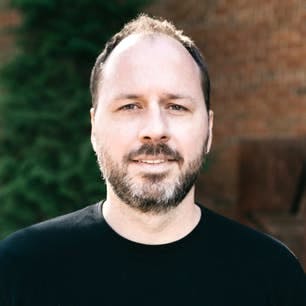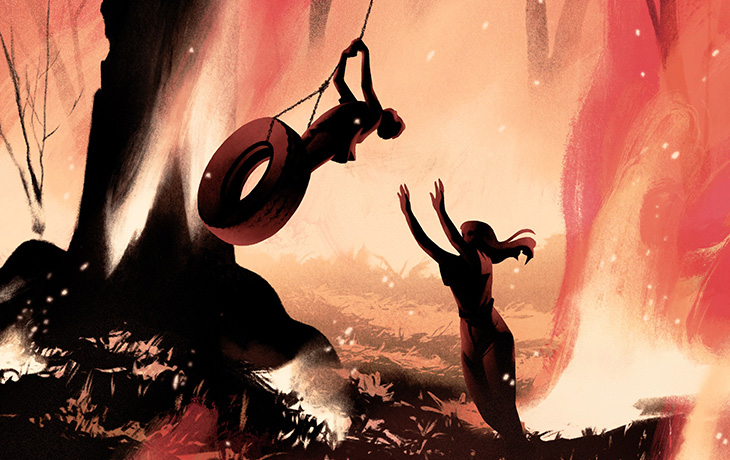If you’ve logged onto the internet this morning, you’ve no doubt seen novelist Jonathan Franzen’s big climate essay in the New Yorker making the rounds. The piece is being shared widely in prepper forums, but before you pile on and click “share” you should know that Franzen is getting a lot of strongly negative reactions from media and climate science Twitter.
I don’t follow as much climate Twitter as I should, so for me this Business Insider article served as the entrance to the rabbit hole of Franzen takedowns and mockery.
I spent some time clicking through all the Twitter threads and trying to untangle the different reactions to the piece, and I came away with the following impressions:
- Franzen has stepped in it, before, with a 2015 New Yorker article on climate change that everyone hated. In fact, hating Jonathan Franzen for writing things that aren’t novels is a pretty popular thing to do in media circles. (Confession: I’ve been guilty of this, too. As a rich novelist guy who’s free with his opinions about all sorts of things, Franzen’s an easy target.)
- Critics of Franzen’s latest effort are mad because Franzen is a novelist, and not a climate scientist or policy thinker, and they’ve mistaken the piece for a “climate science” essay — which it actually is not.
- The current New Yorker essay is a pessimistic look at human nature and at our society’s apparent inability to collectively tackle truly large-scale problems, especially when the negative effects are delayed by decades.
- Franzen’s recommendations for what we should actually do about the coming climatepocalypse are indeed pretty weak, probably because the critics are right about the fact that he is not a real policy thinker.
- The core of the dispute between Franzen and his critics — Franzen’s idea that we should prepare to survive an inevitable catastrophe, vs. the critics’ insistence that we must put all our efforts into preventing the catastrophe because if it comes it’s not survivable — is familiar to me from the related fields of so-called X-risks and nuclear deterrence.
As a (great) novelist, Franzen is a student of human nature, and when he writes he tends to use the frame of, “here are some thoughts I have about humans, and what they are and aren’t capable of.” So in this latest New Yorker piece, his argument is summed up in a single quote: "Call me a pessimist or call me a humanist, but I don’t see human nature fundamentally changing anytime soon. I can run ten thousand scenarios through my model, and in not one of them do I see the two-degree target being met."
Ultimately, Franzen's essay isn't about climate science. It's about human nature, and how bad we are at getting together to tackle really big problems over long time horizons. It's not climate doomerism — it's human political will and large-scale problem solving ability doomerism.
The angry response to this pessimistic take is best summed up in a Twitter thread by climate researcher Leah Stokes, who essentially argues that Franzen is obviously wrong because if we made a bunch of major societal changes that she, herself, has admitted will be very difficult politically, then we could still save the world.
https://twitter.com/leahstokes/status/1170734860534714368
In Stokes’s piece on the Green New Deal, which she links in the thread to counter Franzen, she writes things like, “at this stage, the Green New Deal is more exhortation than legislation. If the plan becomes a formal legislative package, the path to passage is narrow," and “removing carbon across society will be difficult. Large segments of the U.S. workforce will need to focus on this problem over the coming decades."
But these points are pretty much exactly what Franzen is engaging with pessimistically — he's saying that given what he knows of humanity’s perennial short-termism and the present dysfunction of American politics, this stuff is not gonna happen.
The rest of the thread wildly mischaracterizes other parts of the essay, as do so many of the other reactions from climate activists and journalists. I did a brief thread with more examples, here, but I won’t clutter this post with them.
My point is this: Franzen does not appear to be wrong about anything specific. Rather, the kind of talk he and his editors at the New Yorker are publicly indulging in is considered at best unhelpful, and at worst actively bad in that it demotivates the public from doing the kinds of things that Franzen says the public won’t ever be motivated enough to do.
Conflicting approaches to catastrophic risks
The core point of dispute between Franzen and some of his critics — whether we should begin actively preparing for an inevitable catastrophe, or whether advocating that people prep for a still-preventable catastrophe is an admission of defeat that will make it inevitable — is familiar to me from my time among futurists who study existential risks (X-risks) and, more recently, from my reading on civil defense in the context of nuclear war.
In both X-risks and nuclear deterrence, the mainstream, socially acceptable approach is to focus 100 percent of one’s efforts on catastrophe prevention, and to actively oppose public calls to develop a “Plan B,” for one or more of the following reasons:
- If the catastrophe strikes, we’re all doomed, so a Plan B is pointless.
- If people have false hope that catastrophe is survivable, that will make them complacent around an issue where complacency is deadly.
- Effort spent on backup plans and prepping is (individualistic, selfish) effort that could and should be spent on (collective, public-minded) prevention.
When I lived in San Francisco I had a number of friends who worked on sustainability and on preventing so-called X-risks, like an AI apocalypse, or an asteroid strike, or bioengineered pandemic. None of these people are preppers, and in fact they wouldn’t touch prepping with a ten-foot pole. It’s just not done, mainly for all three of the practical and moral reasons I outlined, above.
I’ve seen a similar dynamic at work in the outright hostility to “civil defense” by many policy experts who work in the field of nuclear deterrence. The idea is that a nuclear war is not survivable, and telling people that it is only makes such a war more likely. So private prepping and civil defense efforts, like public fallout shelters, are actively harmful, because they give citizens a selfish, false hope that lessens the urgency around disarmament.
In the case of opposition to Franzen’s call for us all to start doomsday prepping as a society, there seems to be a smattering of all three of the above rationales at work. The last one especially, with its moral overtones and emphasis on the collective good, figures into this extensive response to the piece at The Nation.
Really, this is about who’s giving people false hope: is it false hope to claim that catastrophe is preventable, or false hope to claim it’s survivable?
I actually think there is room in the world for both types of doomerism — the type that says we should come up with a Plan B because catastrophe is probably inevitable, and the type that says we should still work to prevent catastrophe. Just like the many folks who ripped Franzen’s 2015 New Yorker piece by pointing out that activists can work on two things at once — saving the birds and preventing climate change — I think we can and should work on a Plan A (prevention) and a Plan B (survival).
And guess what: Franzen agrees! Despite multiple allegations that he’s engaging in “binary” thinking on this issue, he clearly thinks it’s good that people are working on prevention, but that realism about the long odds of success should drive us to also spend considerable effort on planning for a worst-case scenario.
I just don’t find it worthwhile to dispute either his grim estimation that we won’t fix this in time, or his recommendation that we all start thinking about what happens when efforts to fix it fail. This seems sensible and unobjectionable, and I’m glad the New Yorker gave him a platform for it. I hope more people follow Franzen’s lead, and start to think about both a Plan A and a Plan B.


You are reporting the comment """ by on